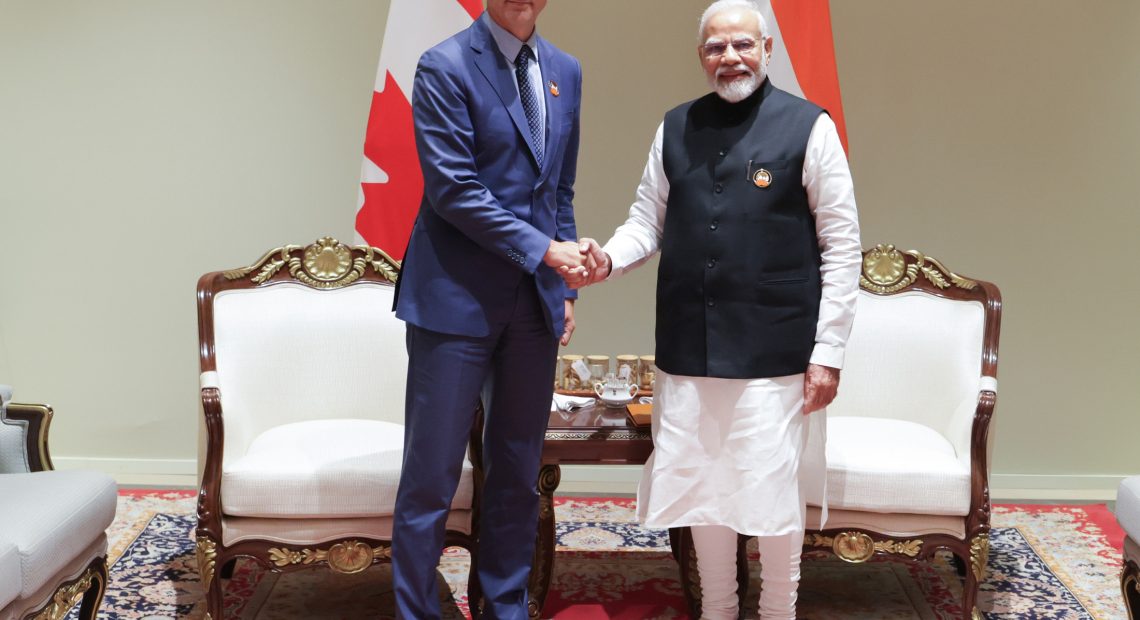
Image Credit: pmindia.gov.in

Canada’s Foreign Affairs Minister, Melanie Joly, has stated that the remaining Indian diplomats in the country are “on notice” as tensions escalate between the two nations.
This warning follows Canada’s earlier move to expel India’s high commissioner and five other diplomats, accusing them of links to the murder of Khalistani terrorist Hardeep Singh Nijjar. India responded by recalling its top envoy from Ottawa and expelling six Canadian diplomats.
Ongoing Diplomatic Dispute Following Nijjar Assassination
The diplomatic standoff began after Canadian Prime Minister Justin Trudeau accused Indian agents of being involved in Nijjar’s assassination outside a gurdwara in Surrey, Canada. However, Trudeau later admitted that Canada had no “hard evidentiary proof” to support these claims, stating the allegations were based primarily on intelligence. Despite this, the Royal Canadian Mounted Police (RCMP) recently went public with allegations that Indian diplomats were sharing information about Sikh separatists in Canada with Indian organized crime groups, including the notorious Bishnoi gang.
Canada’s Firm Stance Against Diplomatic Violations
Joly compared India’s alleged actions to Russia’s interference in European nations, particularly in Germany and the UK. She emphasized that Canada would not tolerate any violations of the Vienna Convention by Indian diplomats, especially those based in Toronto and Vancouver. Joly’s comments reaffirm Canada’s firm stance on preventing transnational repression on its soil.
India’s Response: Denial and Criticism of Canada
In response to Trudeau’s admission, India’s Ministry of External Affairs reiterated that Canada has provided no concrete evidence to back its allegations. The ministry criticized Canada’s handling of the situation, stating that the diplomatic fallout rests on Trudeau’s “cavalier behavior,” which has severely strained India-Canada relations.
As tensions continue to simmer, both nations are maintaining a firm posture, further complicating an already delicate diplomatic relationship.
Bharat Pulse News is an independent news platform committed to bringing you the truth, unfiltered and unadulterated. In an era of sensationalism and clickbait, we strive to stand apart by providing factual, in-depth reporting that speaks directly to the issues that matter most to the people of India.

At Bharat Pulse News, our mission is to deliver clear, unbiased, and factual news to the people of India. We are committed to transparency, integrity, and reporting without sensationalism or bias. Our goal is to empower readers with reliable information, free from clickbait and propaganda, fostering informed decision-making and promoting a more honest media landscape.

